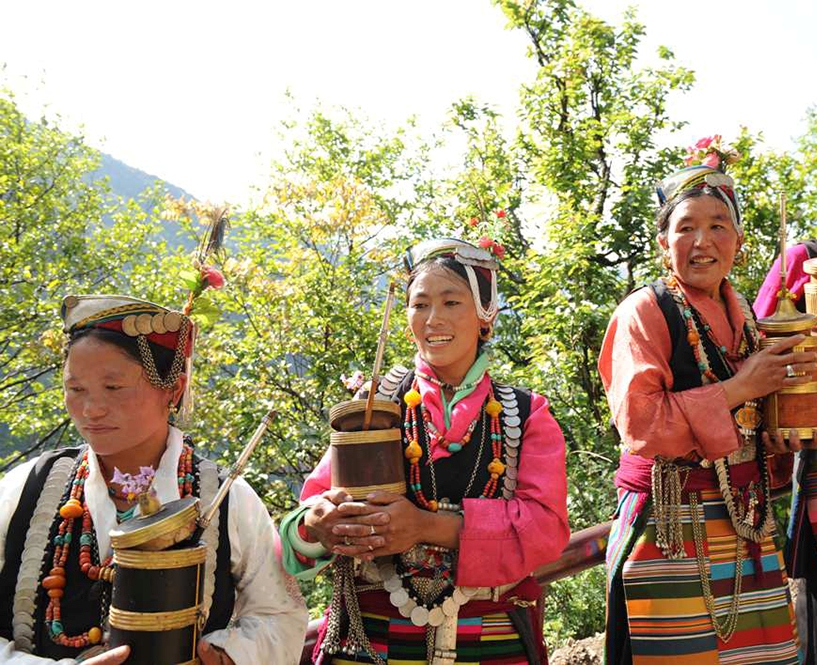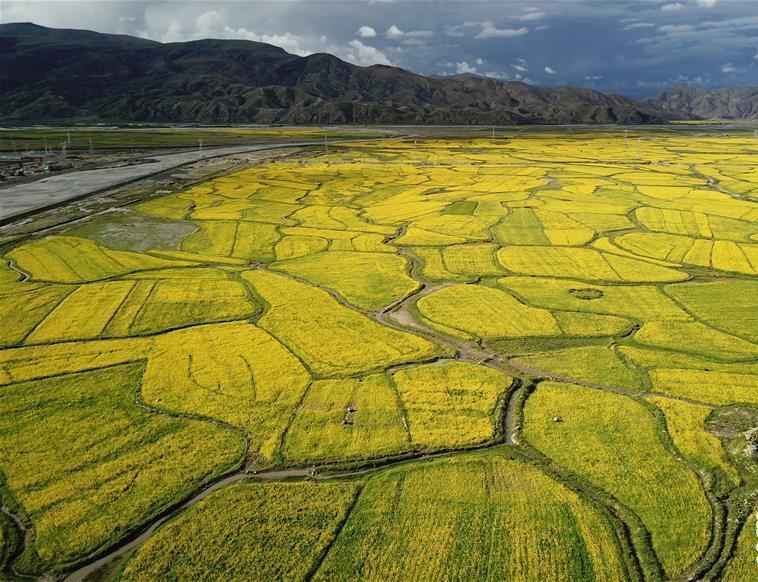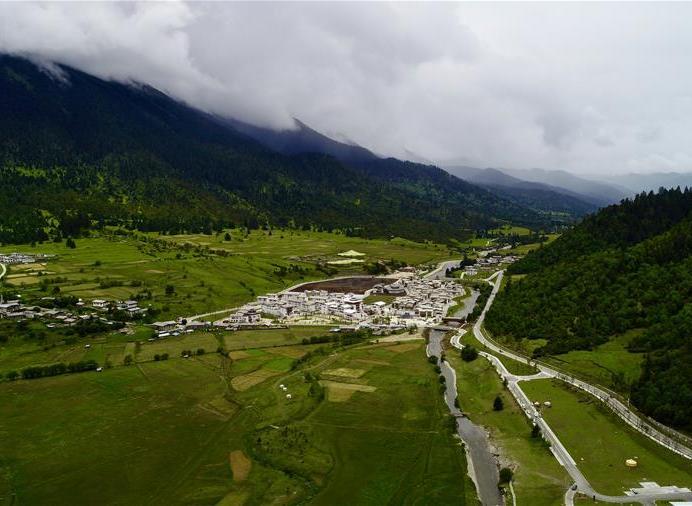How do people celebrate "Chinese Valentine's Day"?
The Double Seven Festival, known as the Chinese Valentine's Day, falls on August 17 this year.
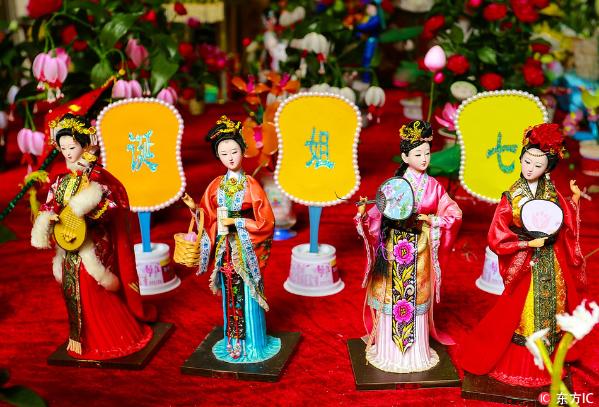
Handicrafts on display on the Double Seven Festival in Guizhou City in south China's Guangdong Province on August 17, 2015. [File Photo: IC]
The history of the festival dates back to the Han Dynasty (206 BC -220 A.D.). Legend has it that girls at that time prayed for creativity to the god Vega on the night of the seventh day of the seventh month on the Chinese lunar calendar. This tradition has since passed on to later generations.
In another Chinese legend, a cowherd and a weaver girl, once a happy couple, moved into the heavens where they became stars separated by the Milky Way. They can meet only once a year when magpies fly together to form a bridge that brings them together. Their meeting also falls on the seventh day of the seventh lunar month, and so, the Double Seven Festival came into being.
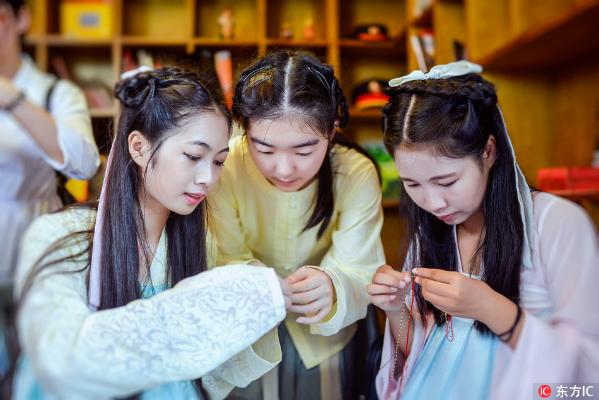
Women exchange ideas about their needlework in Huizhou City in south China's Guangdong Province on August 7, 2016. [Photo: IC]
Since ancient times, many traditions have been used to commemorate the festival. For example, the girls would keep a spider in a small box on that day and check the web the spider weaved the next day. The denser the web is, the more creativity they can receive. The maids in the Imperial palace would compete to thread needles during the festival, and the one who finished first would be awarded with creativity. People also float needles to pray for more creativity.
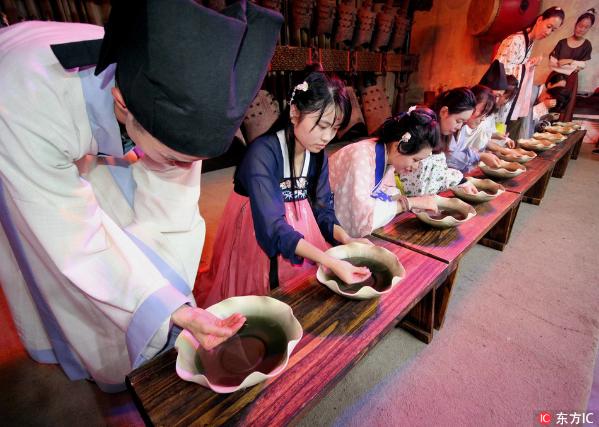
Students in Han Chinese clothing float the needles to see whether they can receive greater creativity at a Confucius Temple in Nanjing City in east China's Jiangsu Province. [Photo: IC]
In modern times, there're still a lot of folk customs celebrate for the Double Seven Festival.
Women living in the plateau area of northwest China's Shaanxi Province usually bundle up straw men and dress them in beautiful clothes. They also make paper cuttings to compete to see who has the cleverest hands.

Craftsman makes paper cuttings to celebrate the approaching Double Seven Festival on August 18, 2015. [File Photo: IC]
In the rural areas of east China's Zhejiang Province, people collect dew with washbowls, and wash their hands with it as they wish for their hands to be more flexible. The dew is said to be the tears of the cowherd and the weaver girl.
In southern Zhejiang, people make special foods to mark the occasion, including dumplings, noodles, and wontons.
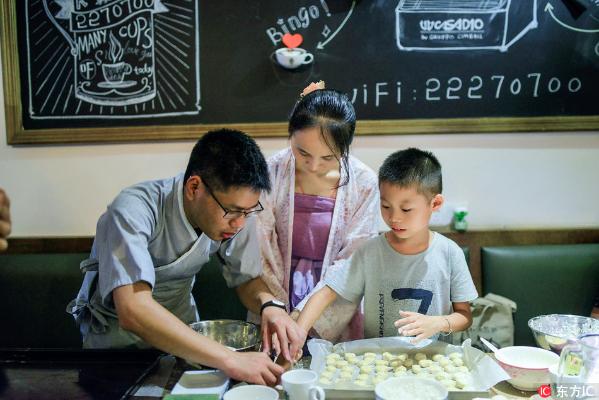
People in traditional Han Chinese clothing make special foods to celebrate the Double Seven Festival in Huizhou City in Guangdong Province on August 7, 2016. [File Photo: IC]
In south China's Guangxi Zhuang Autonomous region, people tie seven knots with a red cord, and wear it round the neck to bring health and happiness.
People in Japan and South Korea also honor the Double Seven Festival. As well as praying for greater creativity, they offer sacrifices to gods or their ancestors as well.
Your Comment
Name E-mailRelated News
-
-
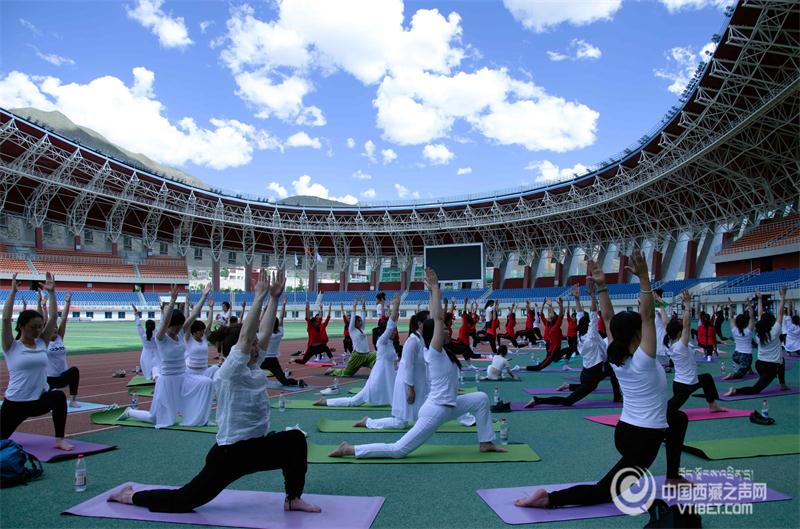
-
Yoga performance held in Lhasa, Tibet
On June 25, 2018, a yoga performance was held in Lhasa, Tibet Autonomous Region to promote the National Fitness Programme and mark the International Day of Yoga on 21, June.
-
-
-

-
Father's Day: 10 films to cherish fatherly love
In case you haven't figured out a way to celebrate the day with your old man this weekend, find some inspirations from the following 10 films.
-
-
-
Chinese moms embrace a smarter life this Mother's Day
For the first time, instead of flowers, Bai Jiexin has bought her mom "something more practical" for Mother's Day, which falls on Sunday -- an electric toothbrush.
-
-
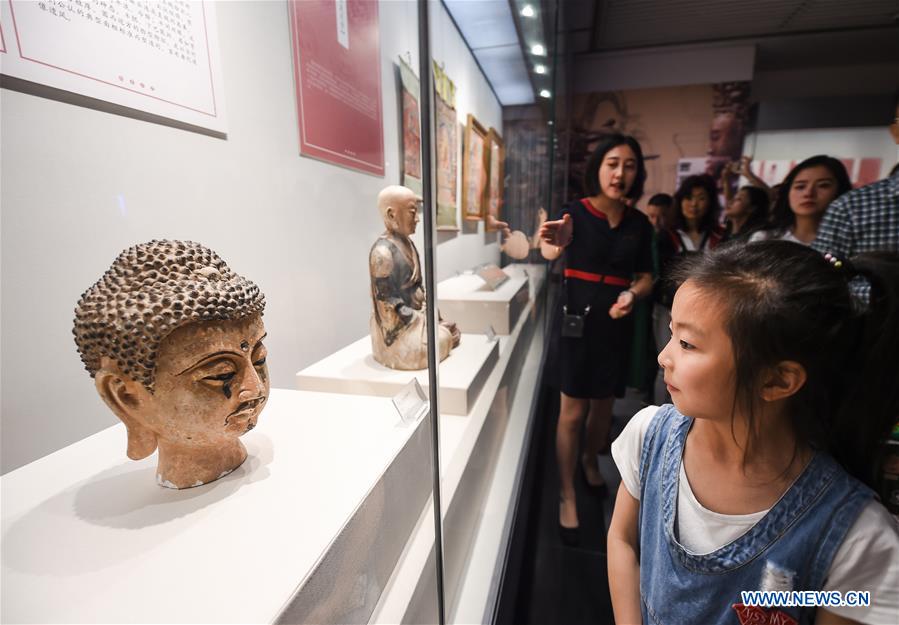
-
International Museum Day marked across China
International Museum Day marked across China.
-
-
-

-
Across China: Changed and unchanged of Tibetan Buddhist monasteries
Every day just as the sun rises, life inside of the Drepung Monastery begins as it has for centuries -- monks awaken, chant of sutras, have a light breakfast, and begin their studies.
-




